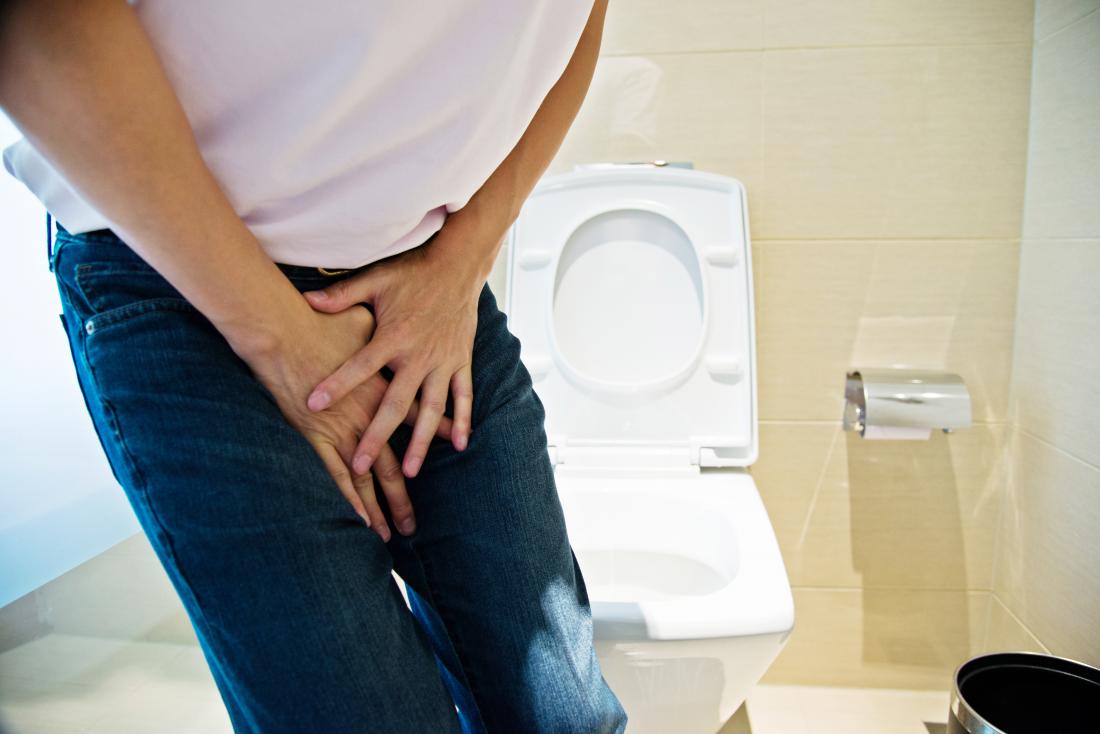6 Effective Natural Remedies for Urinary Retention
The two basic kinds of bladder retention are as follows:
- Acute urinary retention occurs suddenly, lasting only for a short time. This form can be life-threatening, as it prevents people from urinating at all, even if they have a full bladder.
- Chronic urinary retention occurs over a long period of time. People diagnosed with this form can urinate but are unable to completely empty their bladder.
Urinary retention symptoms
Symptoms associated with this condition vary according to which type of urinary retention you’ve been diagnosed with.
Acute urinary retention symptoms include:
- pain in the lower abdomen
- bloating
- an urgent need to urinate
- an inability to empty your bladder
- abdominal pressure
- a weak urine stream
- abdominal pain
- frequent urination
- difficulty emptying your bladder completely
First, it’s helpful to know what’s down there and what exactly happens when you urinate.
Your bladder holds your urine and is part of your lower urinary tract, which also includes your:
- Urethra. This is the tube that transports urine from your bladder to the outside of your body.
- Internal sphincter. The internal sphincter is located near where the bladder and urethra meet (known as the bladder outlet). This keeps urine from releasing into the urethra too soon. You can’t control this sphincter.
- External sphincter. The external sphincter is located in the urethra to keep urine in and let urine out when you urinate. It opens and closes to control when urine can leave the bladder. You can control this sphincter — it’s the one you use when you try to “hold it.”
- Prostate. This is a gland that stores some of the fluids in semen. It’s not part of your urination function but close to the rest of your urinary tract.
- Bladder muscles push urine from the bladder into the urethra.
- Nerves signal for your sphincter to let urine be released from your body.
- The urine stream stops and starts when you control your external sphincter.
- Your urge to urinate goes away once your nerves sense that the bladder is emptied and no longer putting pressure on nearby tissues.
There are several possible causes of urinary retention based on issues that can affect any of these parts or processes.
Obstruction
An obstruction happens when something gets in the way of urine leaving your bladder.
If something suddenly gets in the way and blocks your urine, this causes acute urinary retention. If the obstruction happens slowly over time and still allows some urine out, this results in chronic urinary retention.
Some possible causes of obstructions include:
- swelling in the urethra
- a constriction of the urethra that makes it hard for urine to come out
- an object blocking the urethra
- being constipated
- stones from the kidney or other parts of the urinary tract
- a tumor or other mass in the gut or hip area that’s constricting the urinary tract
- a clot from blood in the urethra
Medication
Some medications can result in urinary retention due to muscle weakness or symptoms affecting your internal sphincter. These medications include:
- pain relievers are known as nonsteroidal anti-inflammatory drugs (NSAIDs)
- muscle relaxers
- urinary incontinence medications
- pseudoephedrine
- some antidepressants
- medication for Parkinson’s disease
- some antipsychotics
- amphetamines
- opioids (such as morphine)
Nerve problems
Damage to or disruption of the nerves near your urinary tract can lead to urination issues. Problems with these nerves make it more difficult for nerve signals to be sent to your brain and back to your body. This is needed to help stimulate the urge to urinate.
Some possible causes of nerve problems that can lead to urinary retention include:
- diabetes complications
- injury to the brain or spine
- vaginal birth
- multiple sclerosis
Urinary retention home remedies
Left untreated, urinary retention can cause severe pain, discomfort, and other medical issues. In some cases, this condition can be life-threatening. You may need to seek emergency medical treatment.
A combination of medical and home treatments may ease symptoms and improve your quality of life.
Here are 6 bladder retention remedies:
1. Peppermint oil
Essential oils — like peppermint oil — are known for their healing properties and their ability to relieve pain. However, peppermint oil is also being used to treat bladder issues.
In 2018 clinical research, researchers are using peppermint oil to treat postpartum urinary retention in women.
To encourage urination, place a few drops of peppermint oil into the toilet water. The vapor from the oil will contact the perineum to increase urine flow. Don’t apply essential oils directly to the skin without diluting them.
Dandelion is a wild herb known for its anti-inflammatory properties. It’s been used historically to treat kidney disease and upset stomach.
Because of its anti-inflammatory abilities, it’s also been used to treat bladder inflammation and retention.
For use, dandelion can be consumed as tea. You can find this herbal tea in local grocery stores. Drink the tea twice a day for results.
If you begin to experience worsening symptoms, stop using immediately and schedule a visit to your doctor.
The stinging nettle plant, also known as Urtica dioica, has been used historically to treat joint pain. However, it’s also been used to relieve symptoms from an enlarged prostate, including urinary retention.
For use, consume the nettle root as tea three times a day. You can also consume this plant as a pill or through an extract.
If you begin to experience irregular bloating or digestive issues, stop using immediately.
4. Cranberry juice:
5. Saw palmetto: This herb is commonly used to treat enlarged prostate glands in men, which can lead to urinary retention. Saw palmetto is believed to work by reducing inflammation in the prostate gland and improving urine flow.
Takeaway
Urinary retention is a painful and potentially life-threatening condition. While home remedies are available for treatment, doctors recommend traditional treatment options for a more effective outcome.
Herbal and other home remedies are often not monitored by the FDA for quality, purity, and safety. Before pursuing treatment options or incorporating natural remedies into your treatment plan, discuss your options with your doctor.
Urinary retention is when your bladder doesn’t empty completely. It’s more common in males but can occur in females. It’s especially common in people at older ages.
When you have urinary retention, your bladder may still feel full after you urinate. This is because it’s not emptying all the way. You may feel like you need to go urgently, even after urinating a large volume of liquid.
When this starts happening suddenly and you can’t urinate, it’s called acute urinary retention. If it lasts a long time and you can still urinate but not completely empty your bladder, it’s known as chronic urinary retention.











